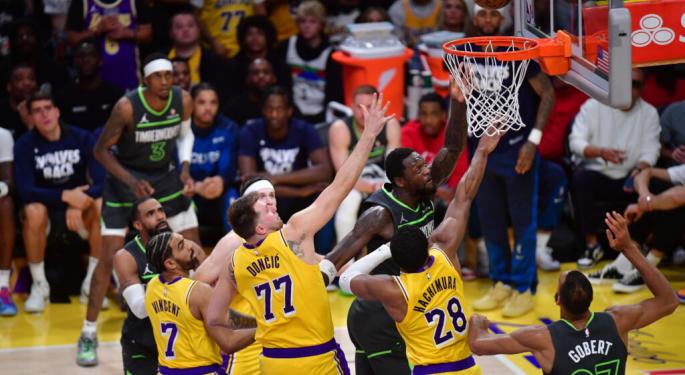The Buss Family Is Set To Sell The Los Angeles Lakers For $10 Billion, After Buying It For Just $68 Million—Here's Why The 15,284% Return Is Far From A Slam Dunk
The Los Angeles Lakers are reportedly on the verge of being sold for a blockbuster price. While the absolute returns on the investment sound incredible, analysts on X are quick to point out that it’s not nearly as impressive as it seems.
What Happened: On Wednesday, it was reported that the Buss family, longtime owners of the Los Angeles Lakers, is preparing to sell the franchise for a staggering $10 billion. That's a jaw-dropping leap from the $68 million the late Jerry Buss paid for it in 1979.
This represents a monumental 15,284% return. But viewed through the lens of long-term compounding, some analysts say that it's far from exceptional.
Users point out that adjusted for inflation, Buss' 1979 investment is equivalent to about $280 million in today's dollars. That makes the real multiple closer to 36x.
Over 45 years, this equates to a compounded annual return of just under 10.5%, roughly in line with the S&P 500's historical average. And that's before taxes, reinvestment risks and the operational headaches of running an NBA franchise.
Popular X user, Trung Phan, compares the investment relative to the performance of the S&P 500 over the years, concluding that a $68 million investment in the S&P 500 in 1979 would now be worth $13 billion. “So the Buss family underperformed by $3B,” he says.
However, Phan acknowledges that the “infinite cultural clout” that this investment brought the family might be well worth it, referring to the Lakers’ 11 Championship wins over the years, alongside the remarkable brand and pop-culture legacy that’s been cemented over the years.
Why It Matters: While passive investing with an S&P 500 index fund, tracked by the SPDR S&P 500 ETF Trust (NYSE:SPY), would have outperformed one of the most popular NBA teams, here are a few other assets that have fared much better during this period.
Asset
46-Year CAGR
Absolute Returns
Los Angeles Lakers
11.46%
15,284%
SPDR S&P 500 ETF Trust (NYSE:SPY)
9.39%
5,446%
Fidelity NASDAQ Composite Index ETF (NASDAQ:ONEQ)
11.74%
16,467%
Gold Spot Price
6.05%
1,392%
Berkshire Hathaway Inc. (NYSE:BRK)
18.17%
216,723%
Read More:
Image Credit: Gary A. Vasquez-Imagn Images
© 2025 Benzinga.com. Benzinga does not provide investment advice. All rights reserved.
Posted-In: Jerry Buss Los Angeles Lakers Trung PhanNews



